New medication for a chronic medication user
Initiating a new medication for a chronic medication user.
In this article let's see how Biotandem helps, when a new medication is added to the treatment plan of a patient with a chronic condition who is already on long term medications.
If this patient's biotype is already in your biotandem records, the system recognizes that she is 28 years old, female with Crohn's disease,
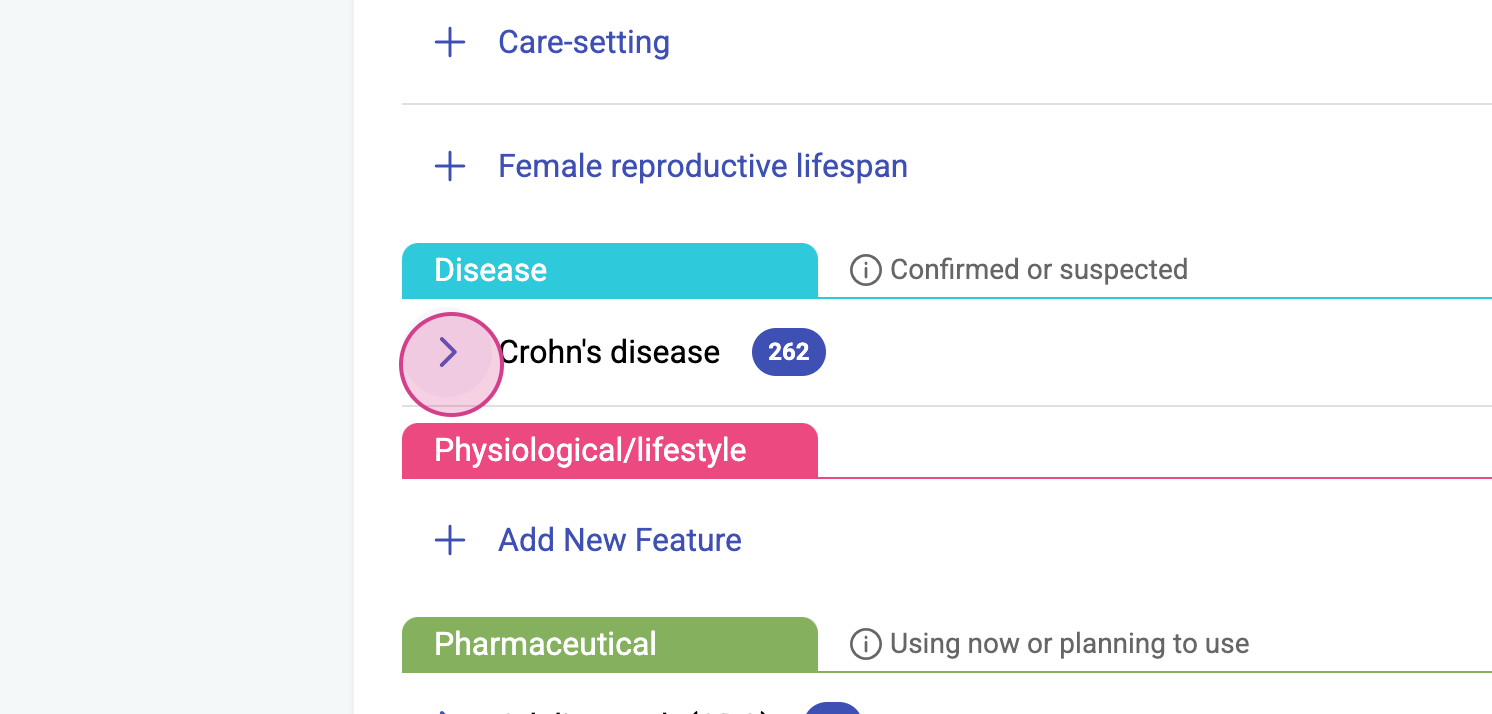
currently in symptomatic remission with adalimumab and azathiropine.
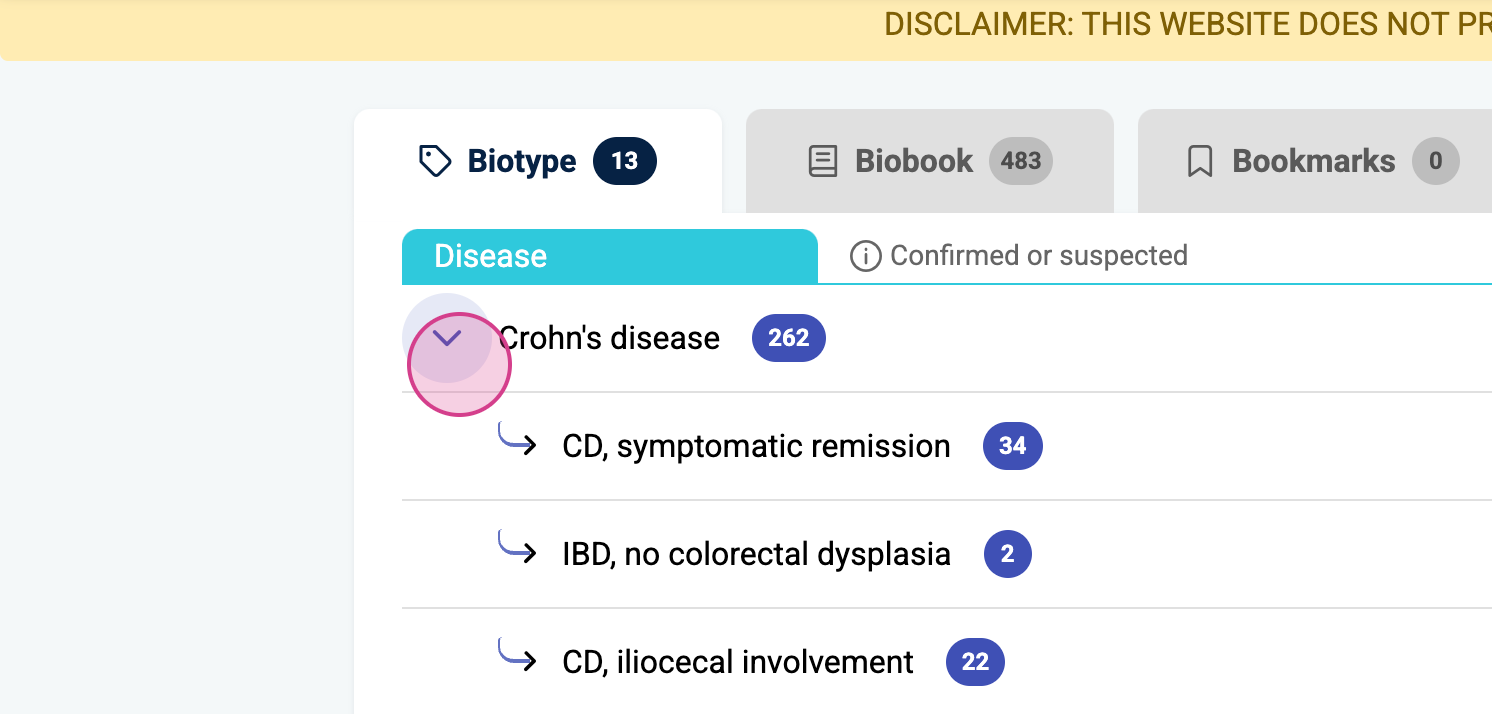
The biotype also has a family history of kidney stones and has detected elevated serum uric acid.
If allopurinol is planning to be prescribed, are there any precautions to take? To find out, simply search for allopurinol and add to this feature to the biotype.
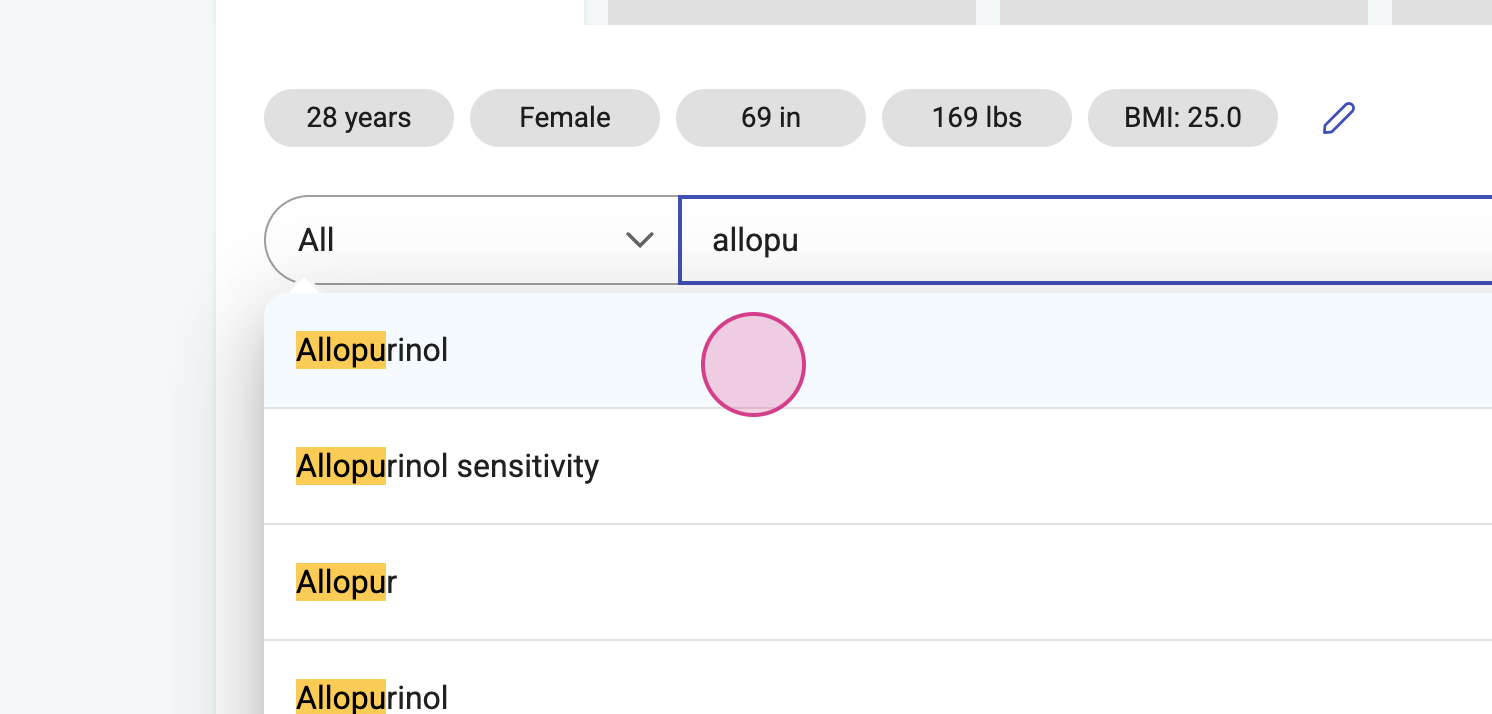
Looking at the hyperuricemia key features
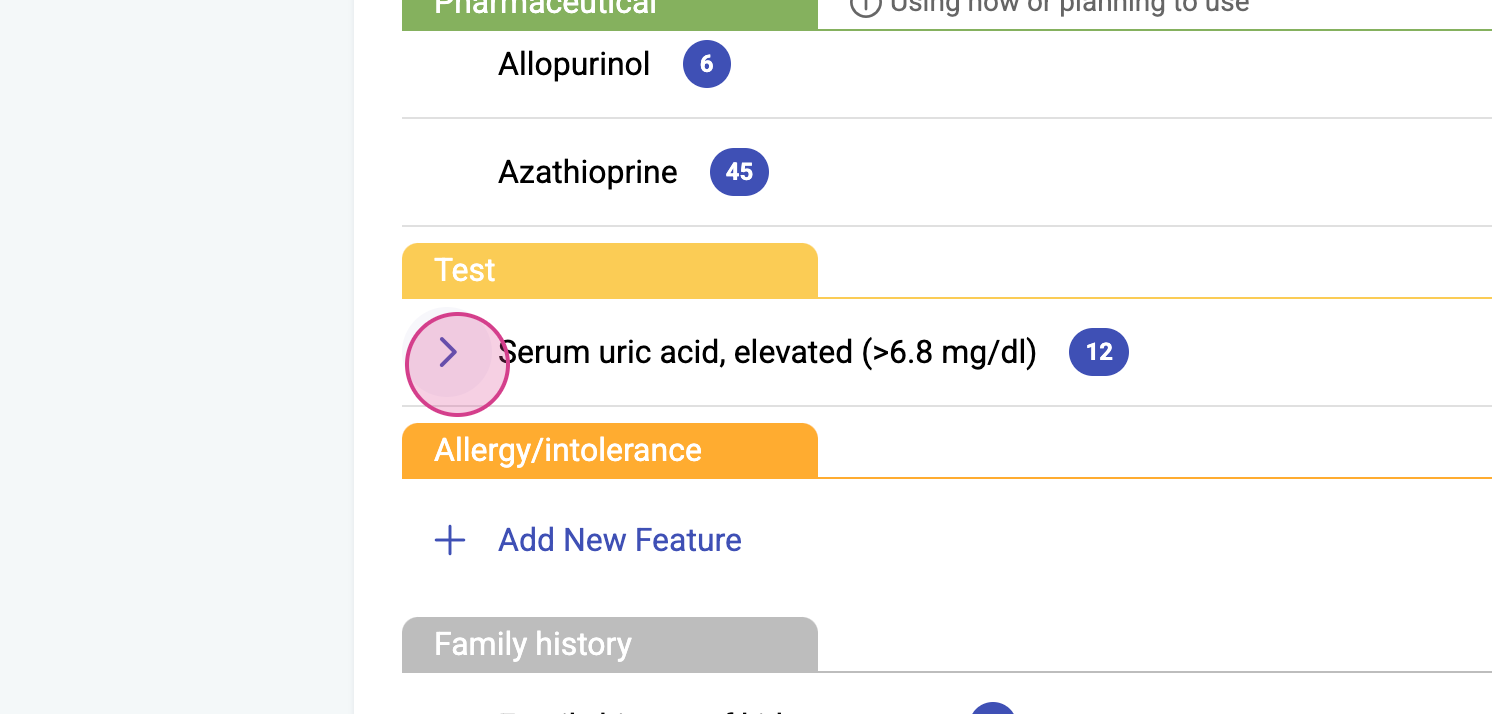
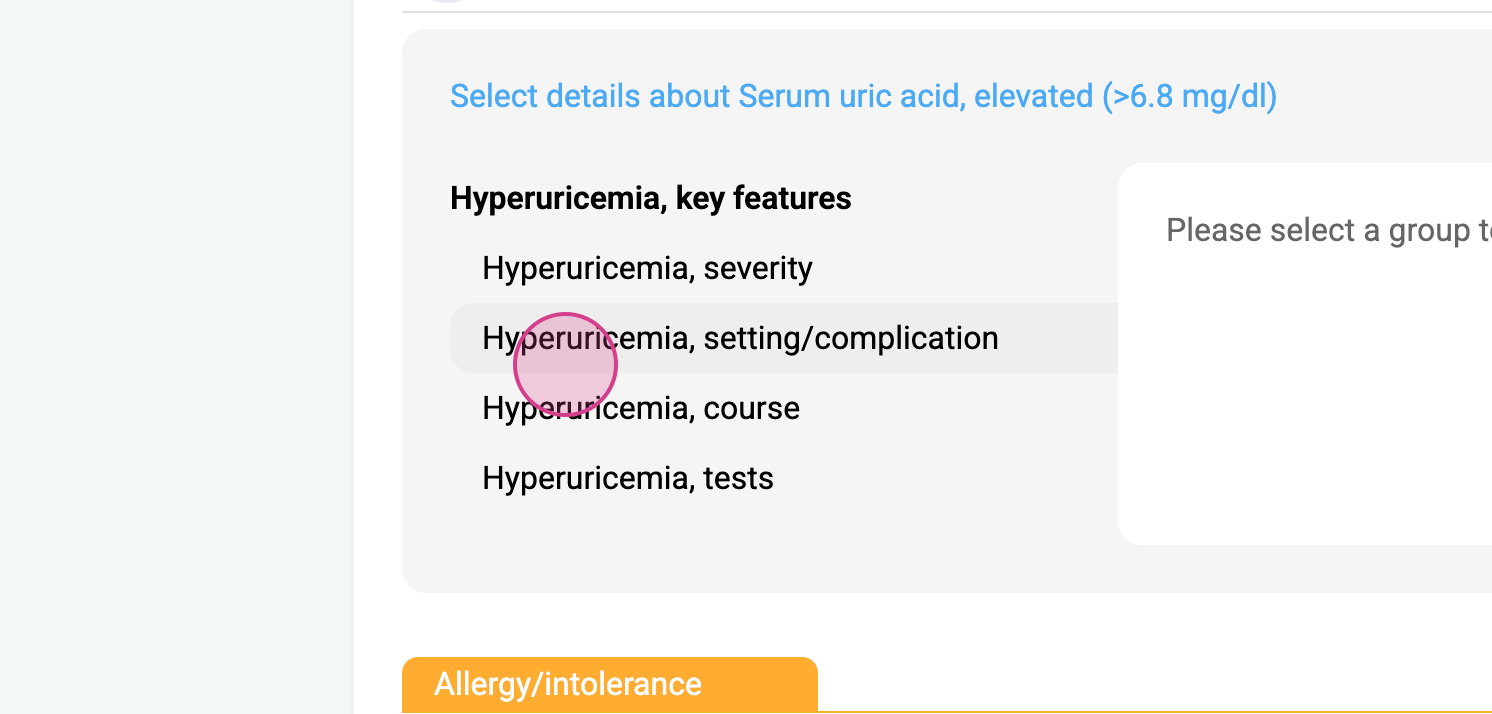
the patient has no gout or uric acid stones so the biotype has asymptomatic hyperuricemia.
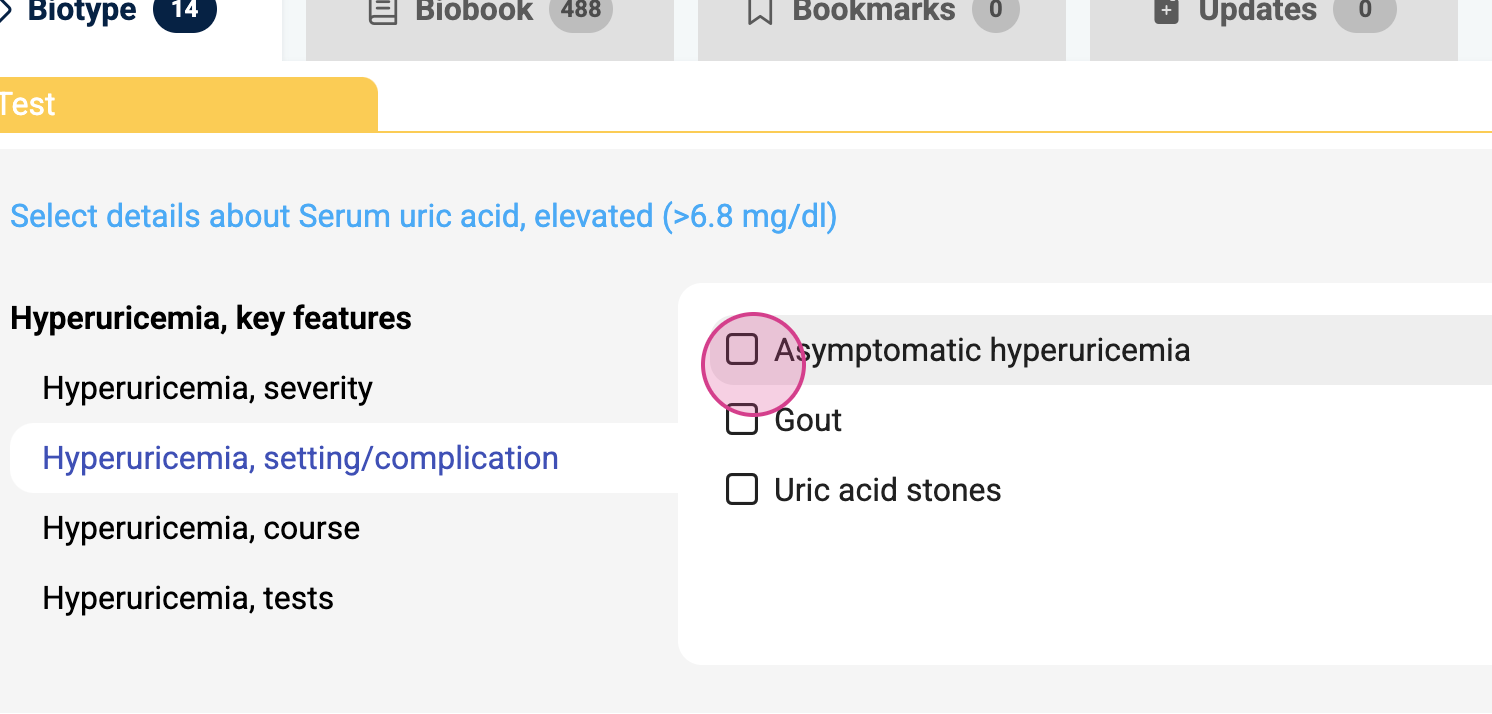
Now let's go to the biobook tab for a personalized information set.
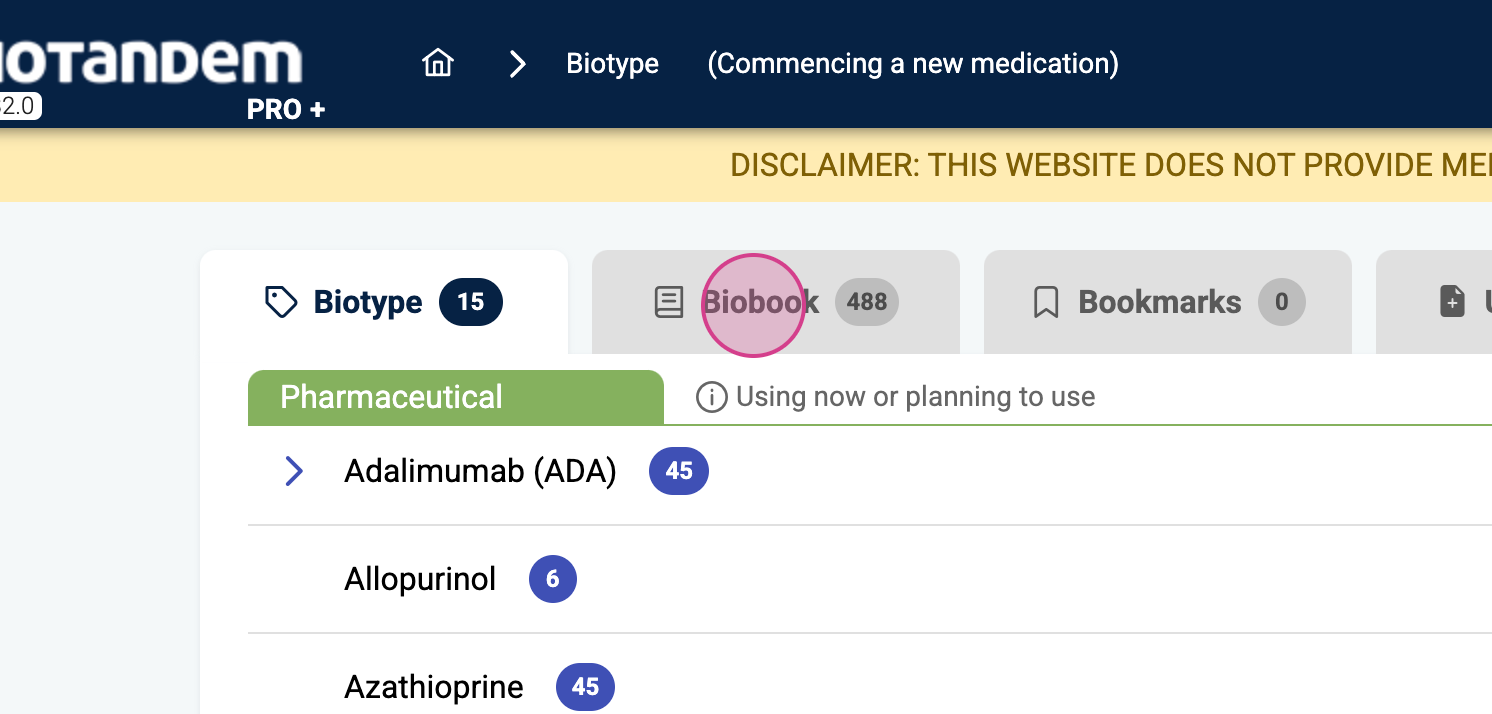
Selecting Family History of kidney stones from the left hand side index,
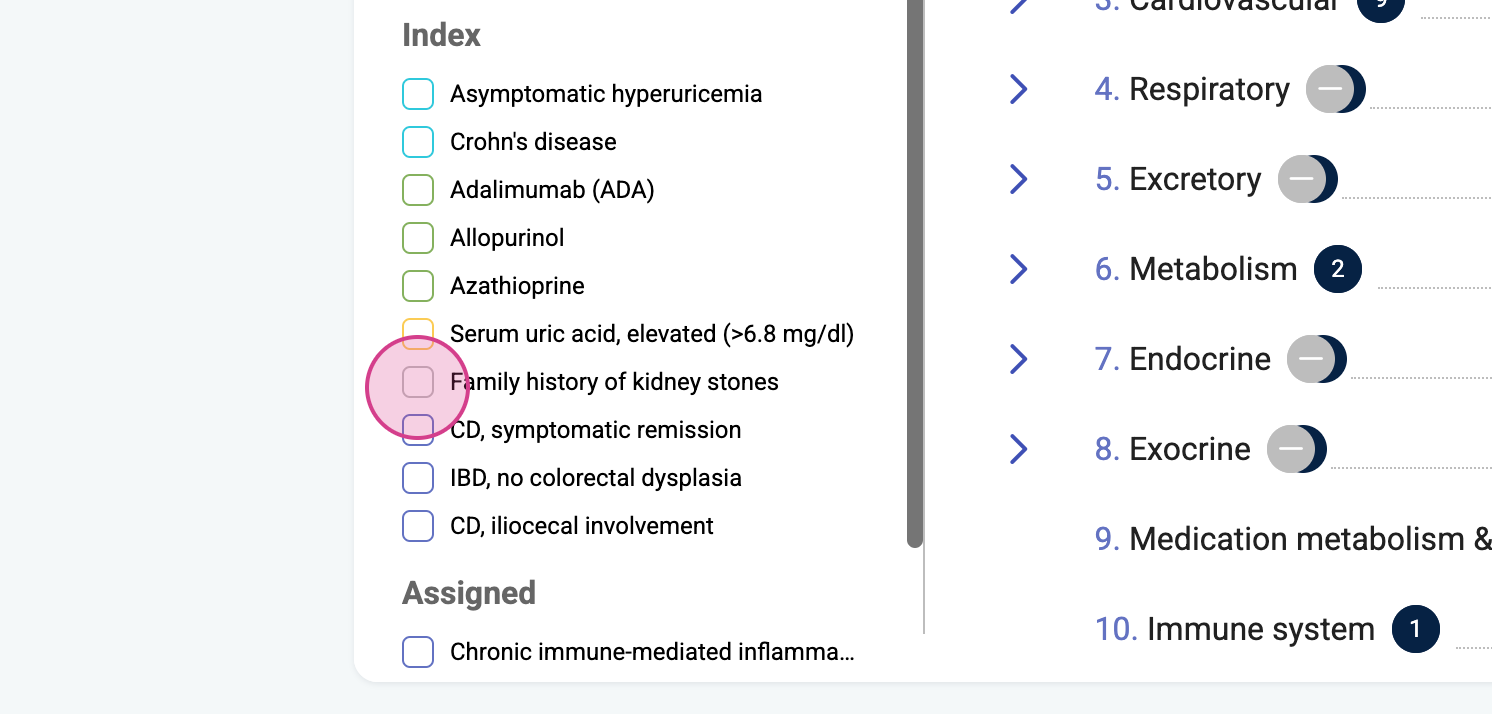
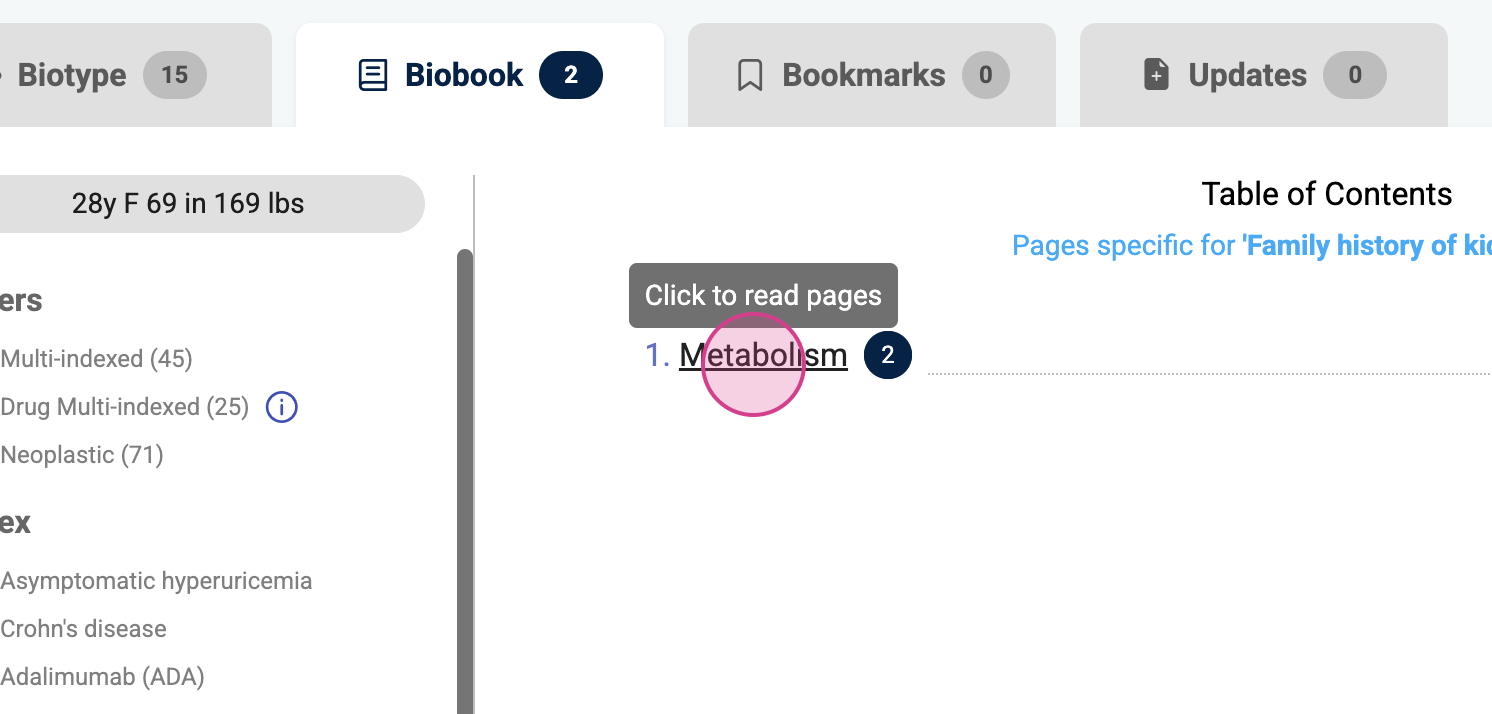
you see that this feature increases the risk of urinary stones.
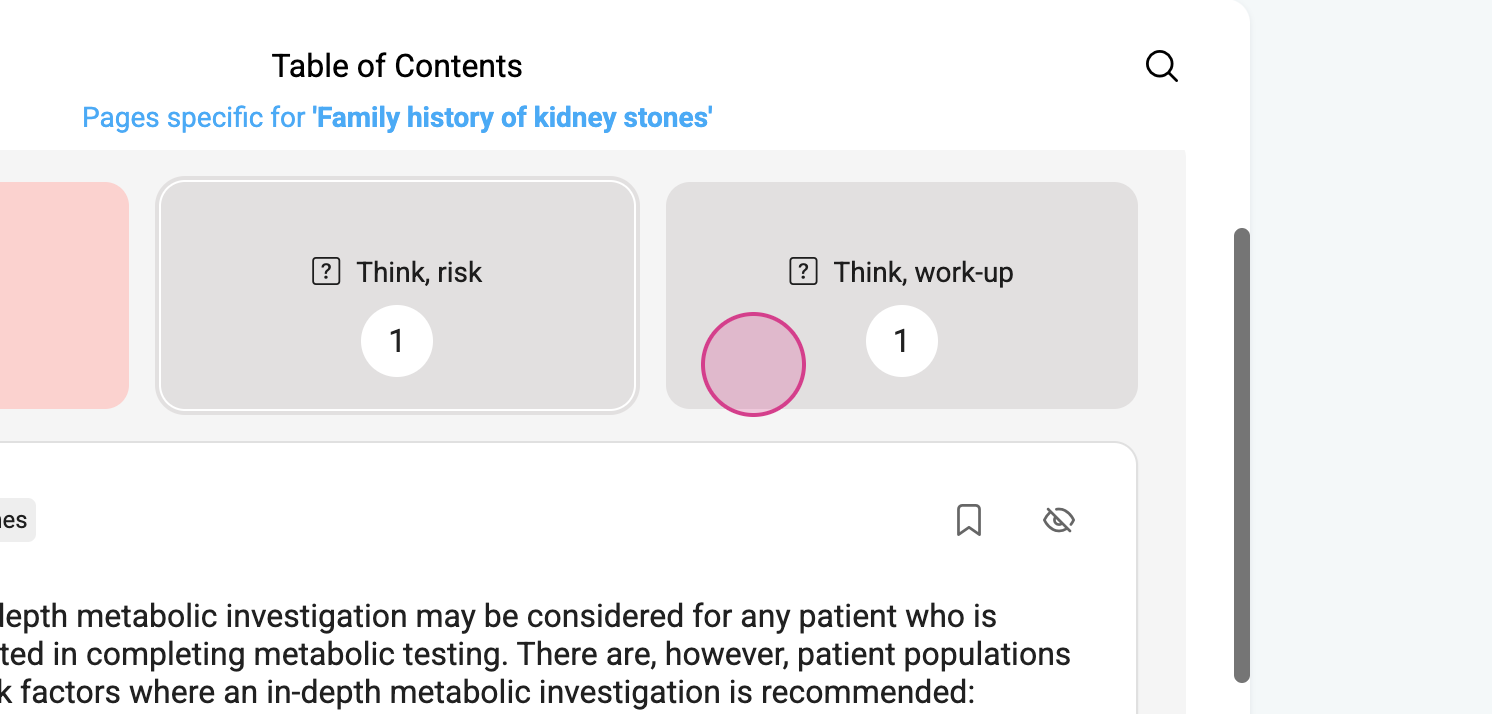
However, when we select asymptomatic hyperuricemia from the left
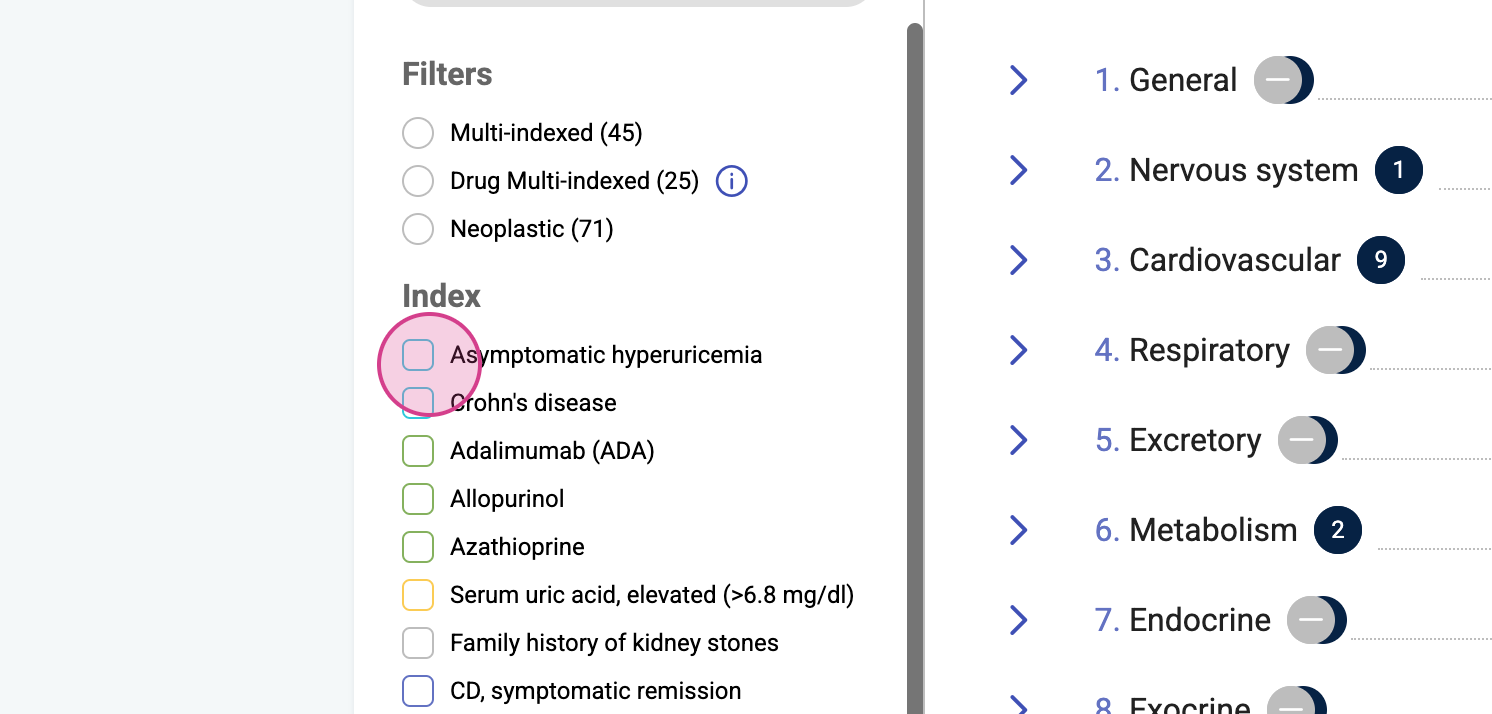
we see that no treatment is recommended.
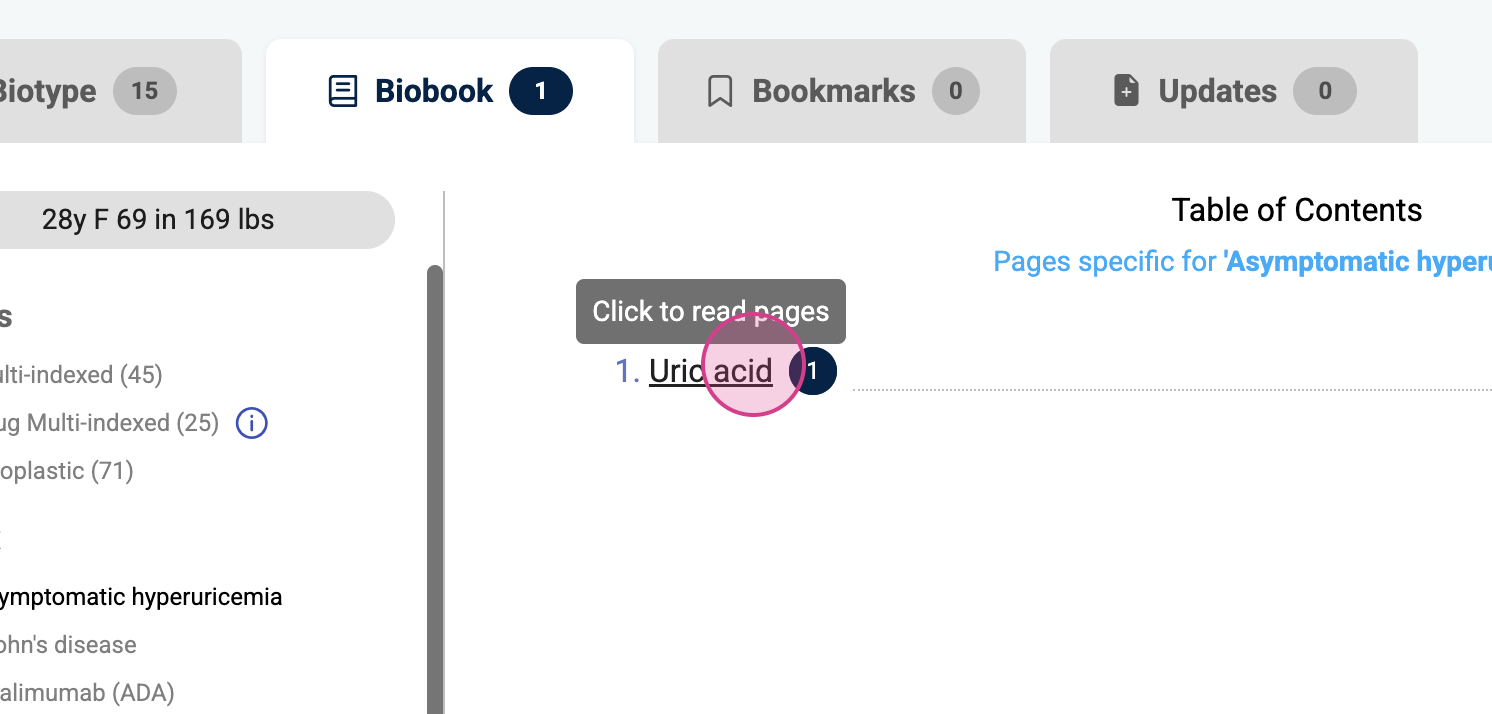
You see the source of the recommendation here.
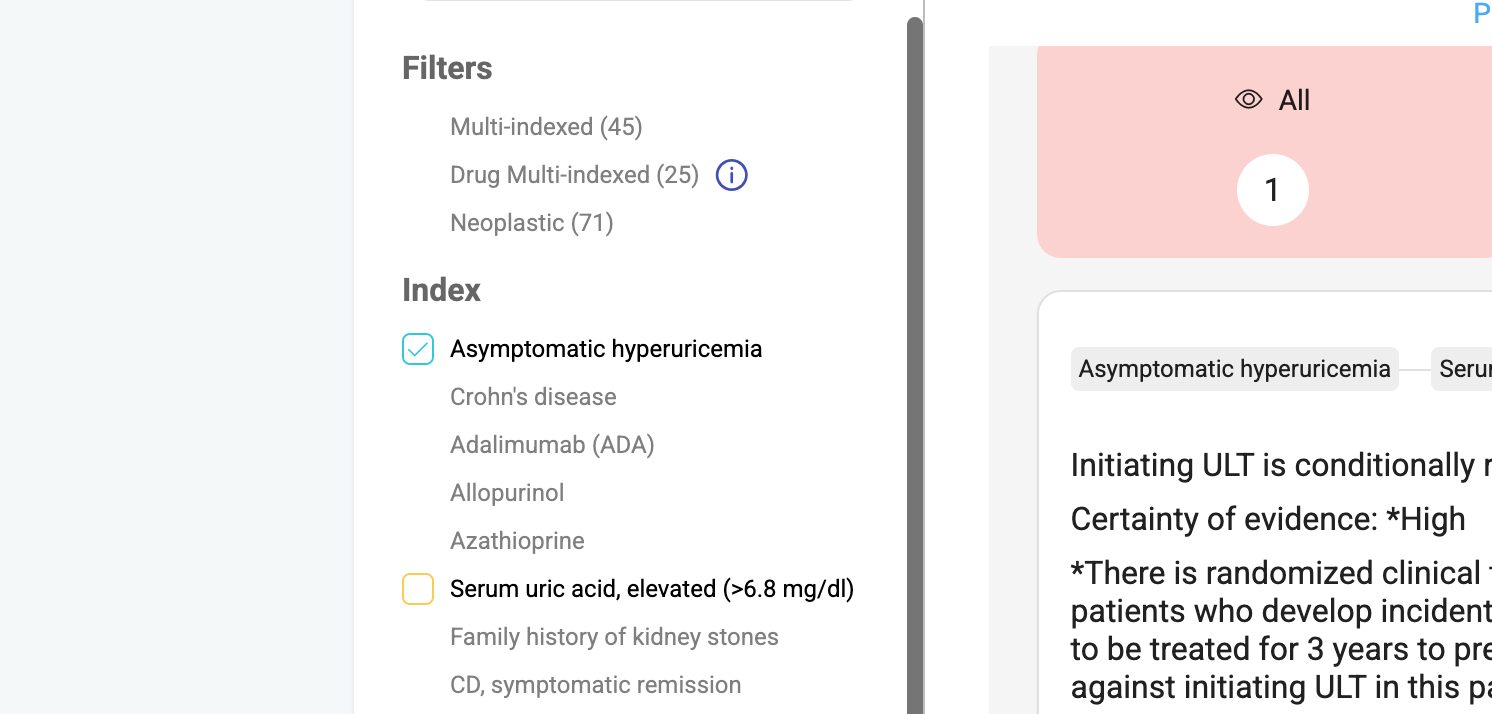
Now, what happens if we start allopurinol? Let's check the index, since azathioprine still selectable feature.
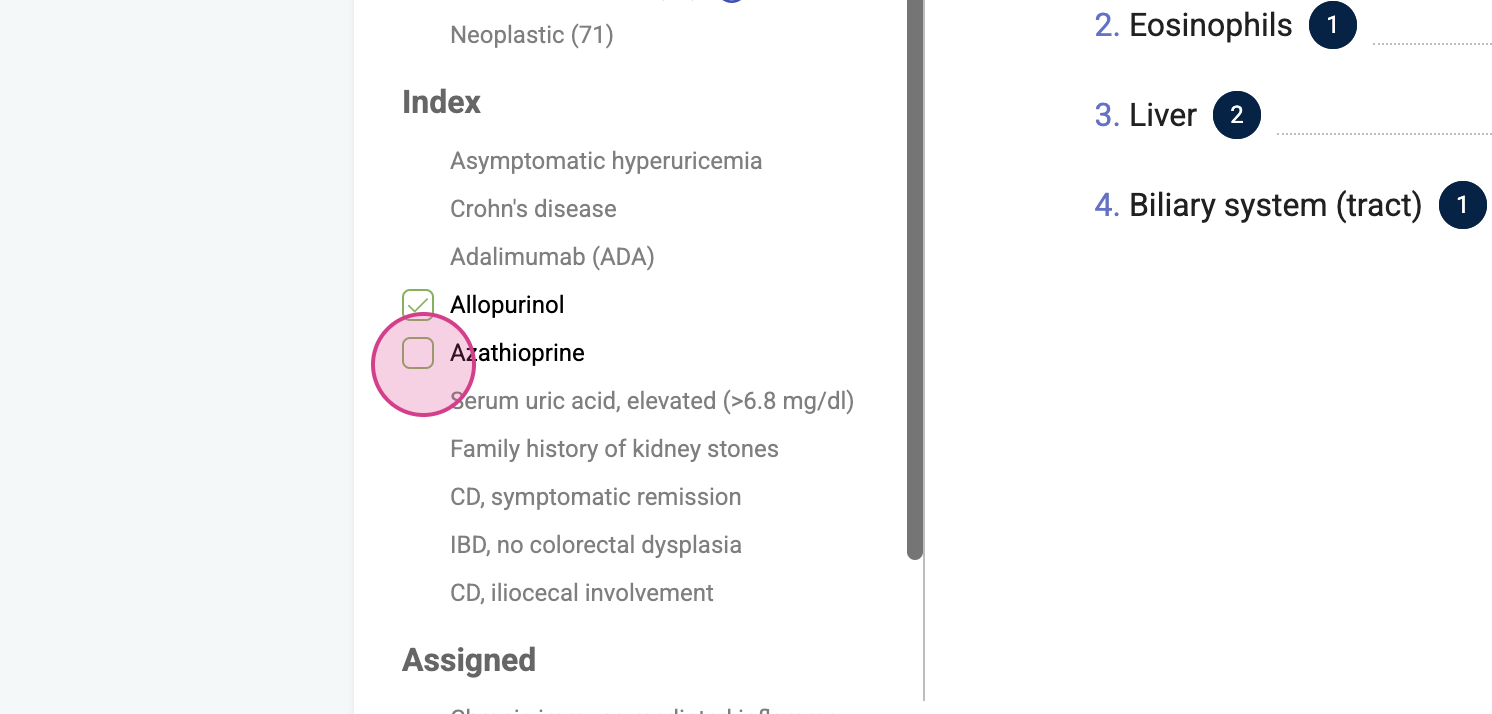
This could indicate that a possible interaction.
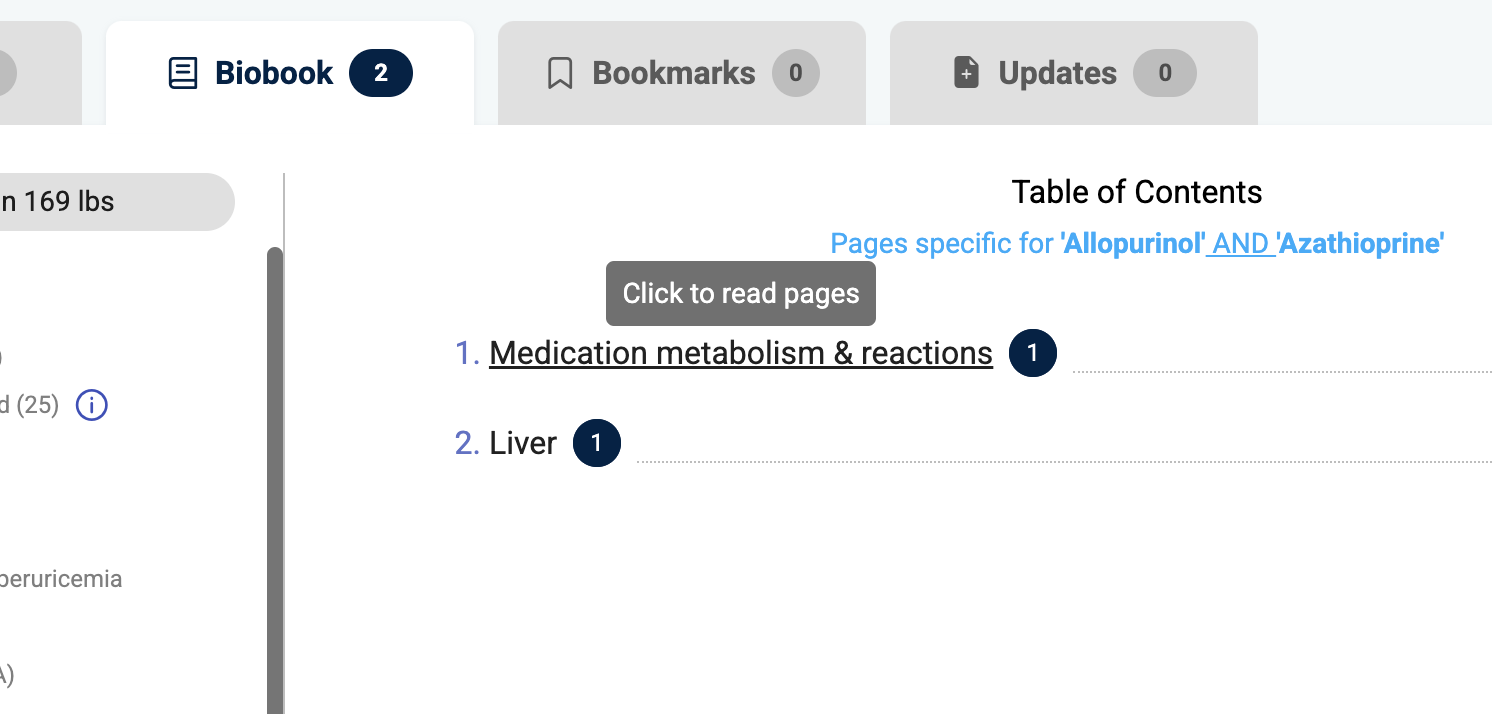
In the medication metabolism and reactions section,
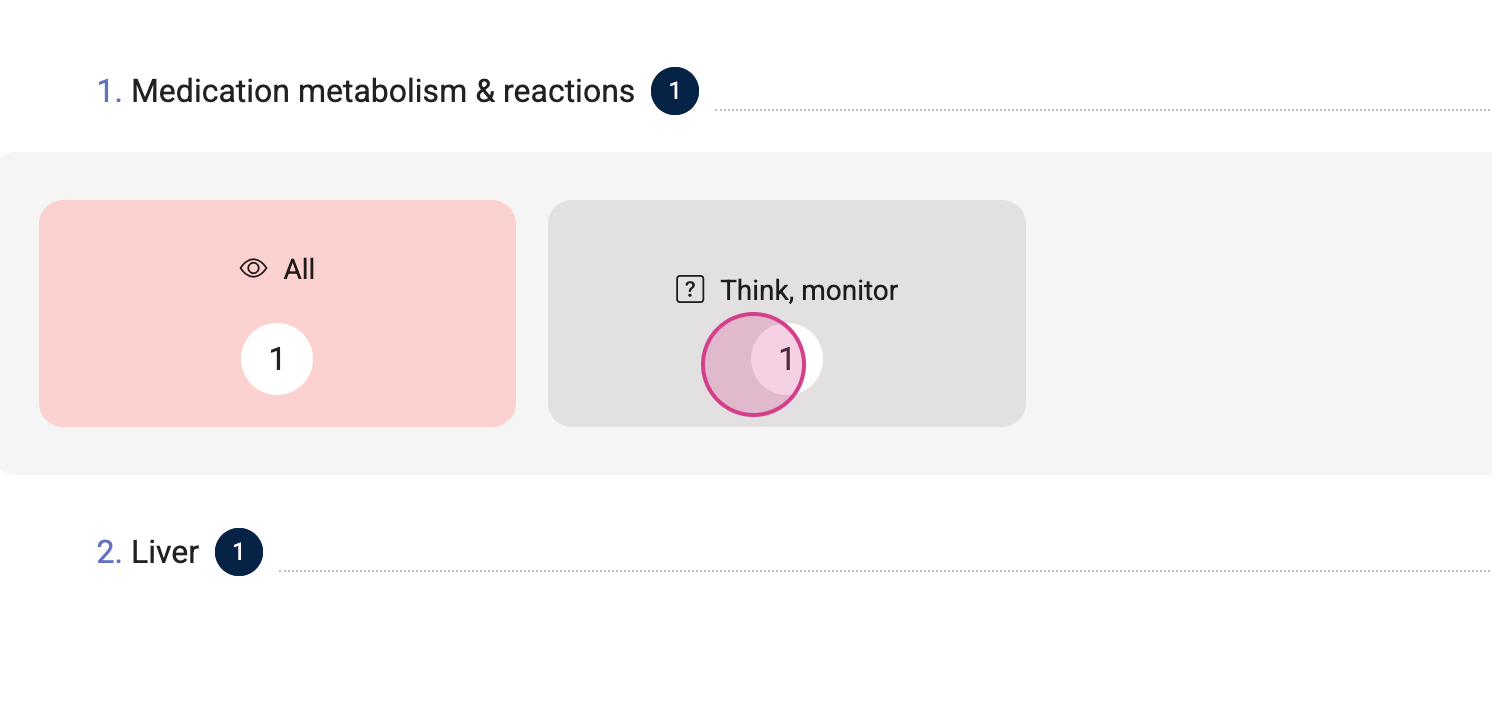
you see it is recommended to reduce the dose of azathioprine if used together with allopurinol.
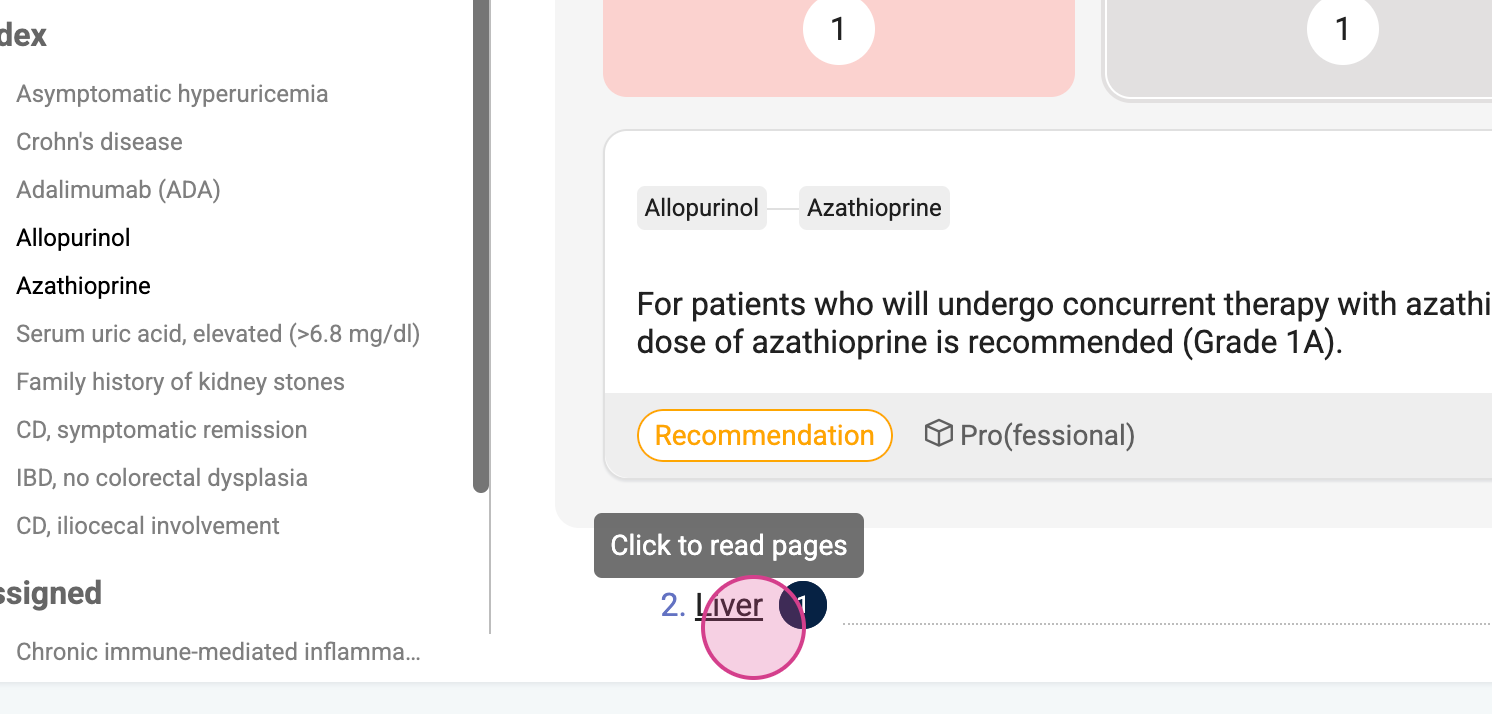
Also, here in the liver section and functional subsection, both medications are shown to carry a risk of idiosyncratic drug induced liver injury.
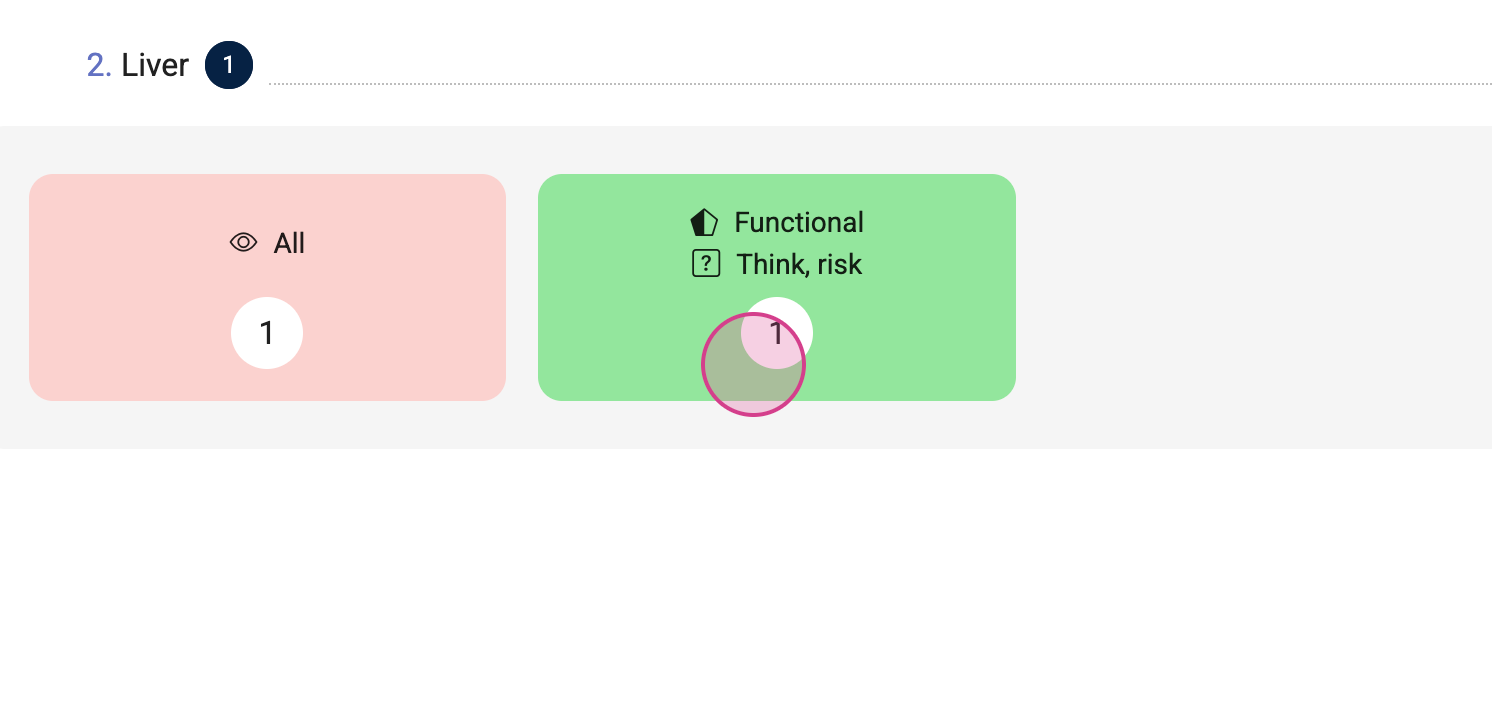
By reviewing these insights, we can determine that asymptomatic hyperuricemia does not require treatment even in a patient with a family history of kidney stones.
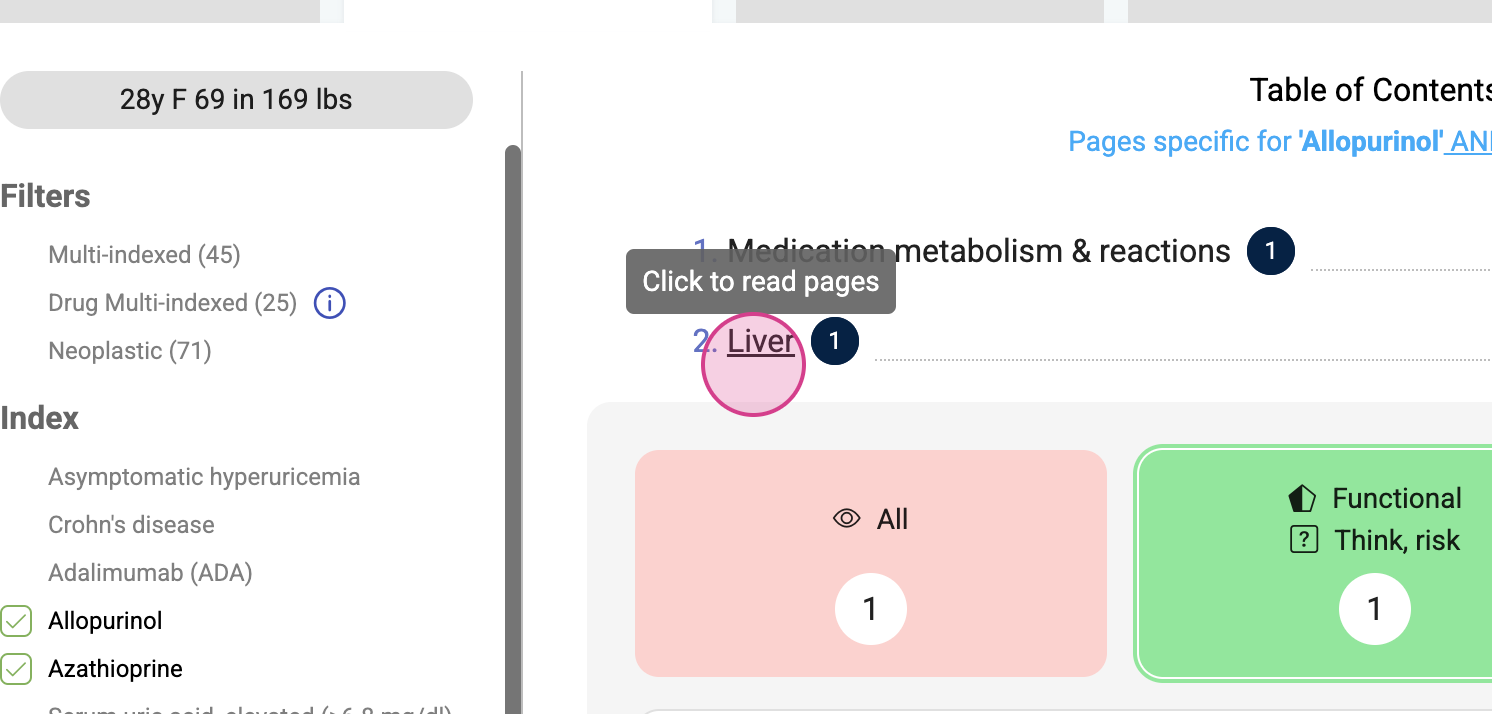
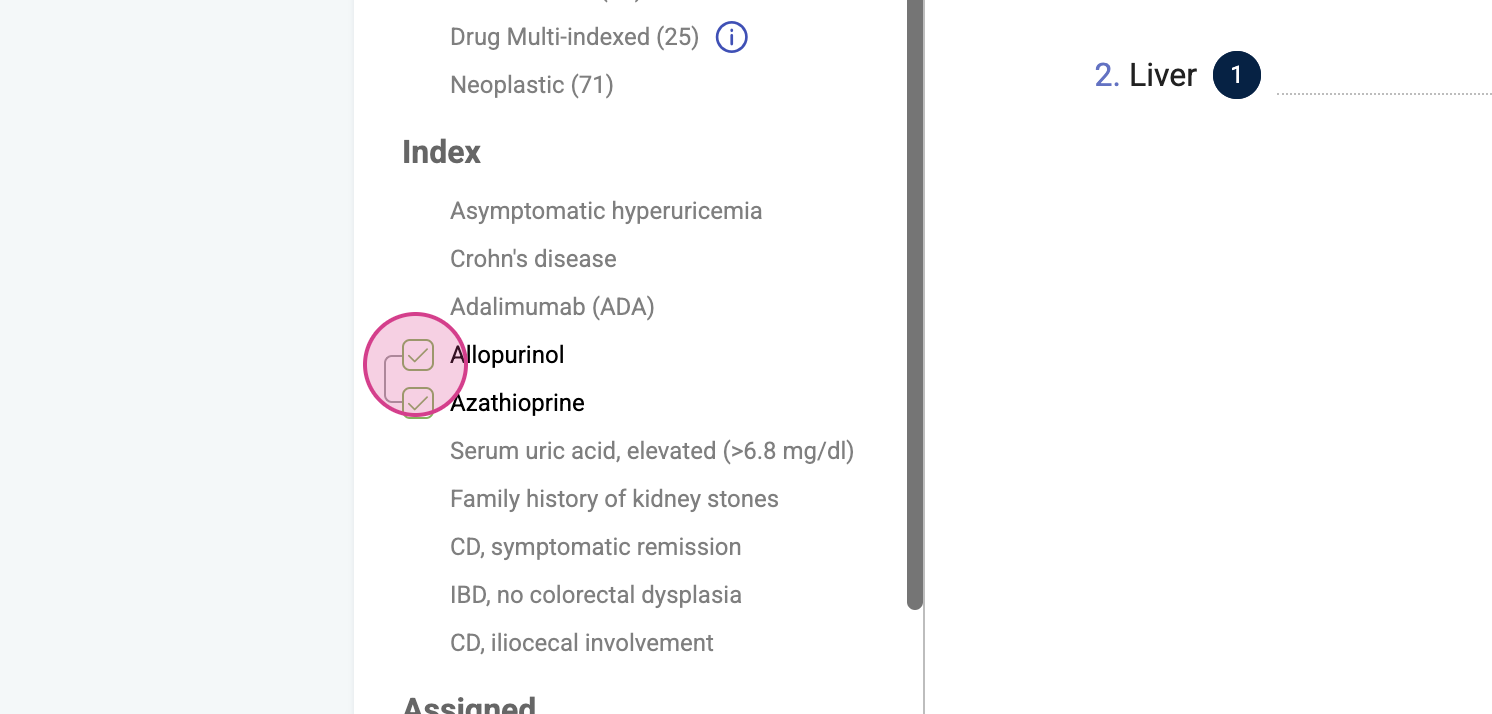
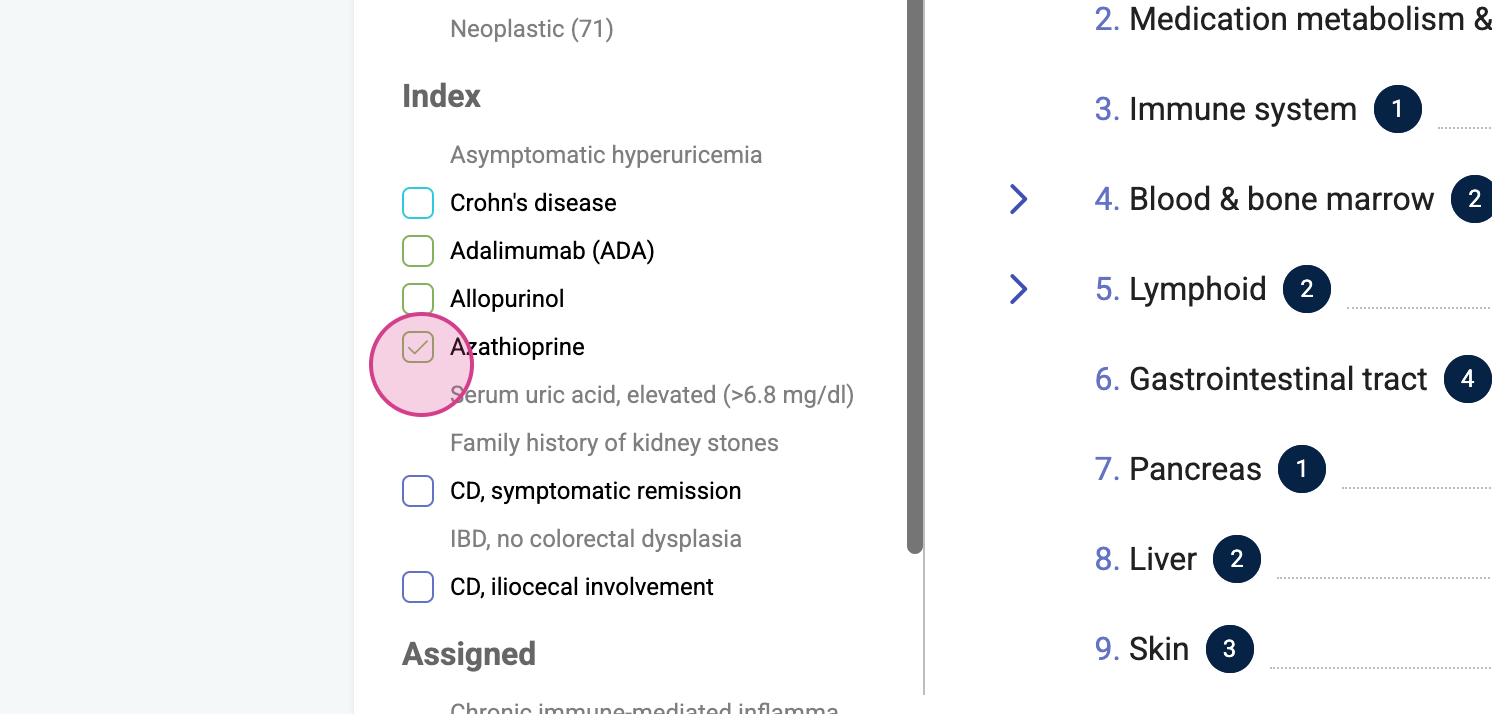
We also identify potential interactions between allopurinol and azothyropone in advance, leading us to remove allopurinol from the treatment plan.
If a new guideline is published for a patient with a family history of kidney stones and asymptomatic hyperuricemia, the biobook will be updated and made available to the user.
Let me remind, checking planned treatments in advance does not add them to the biotype timeline.
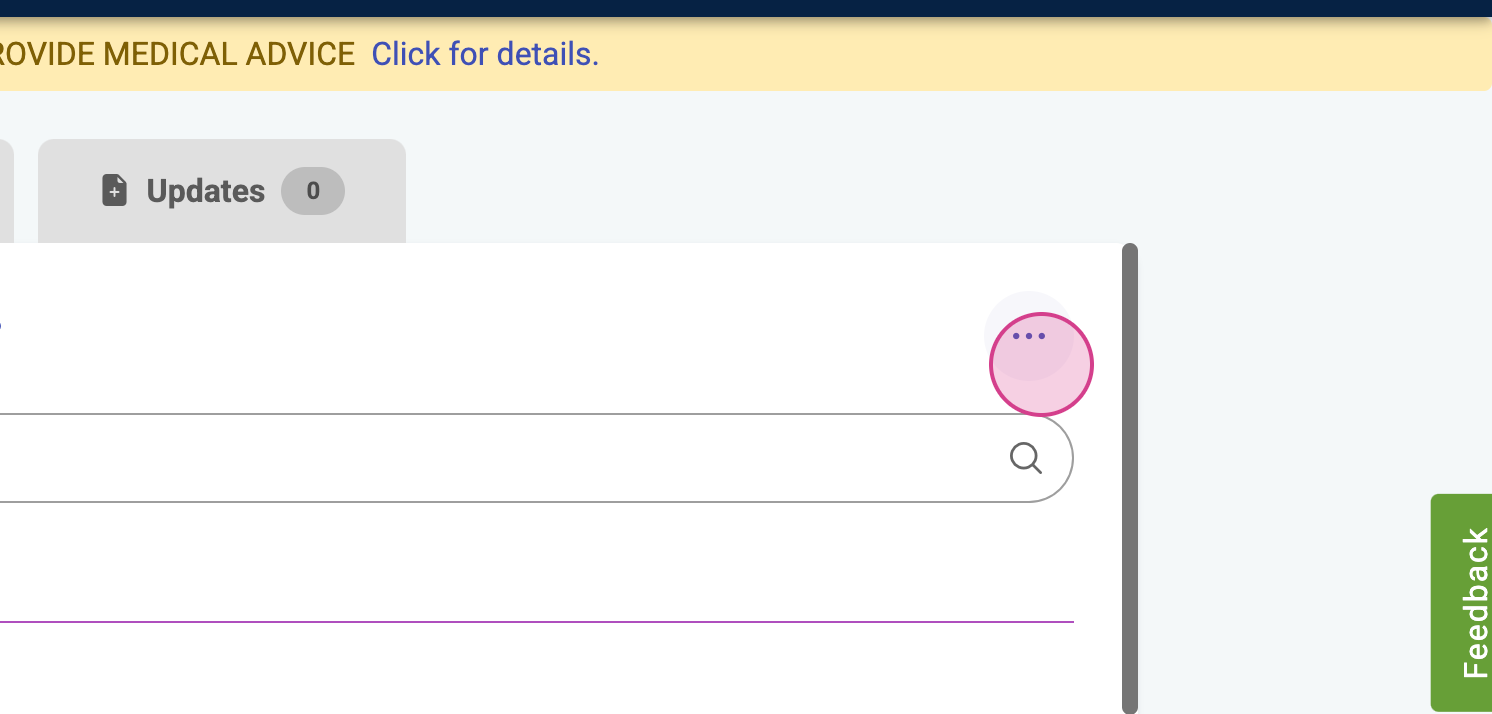
So you can analyze.
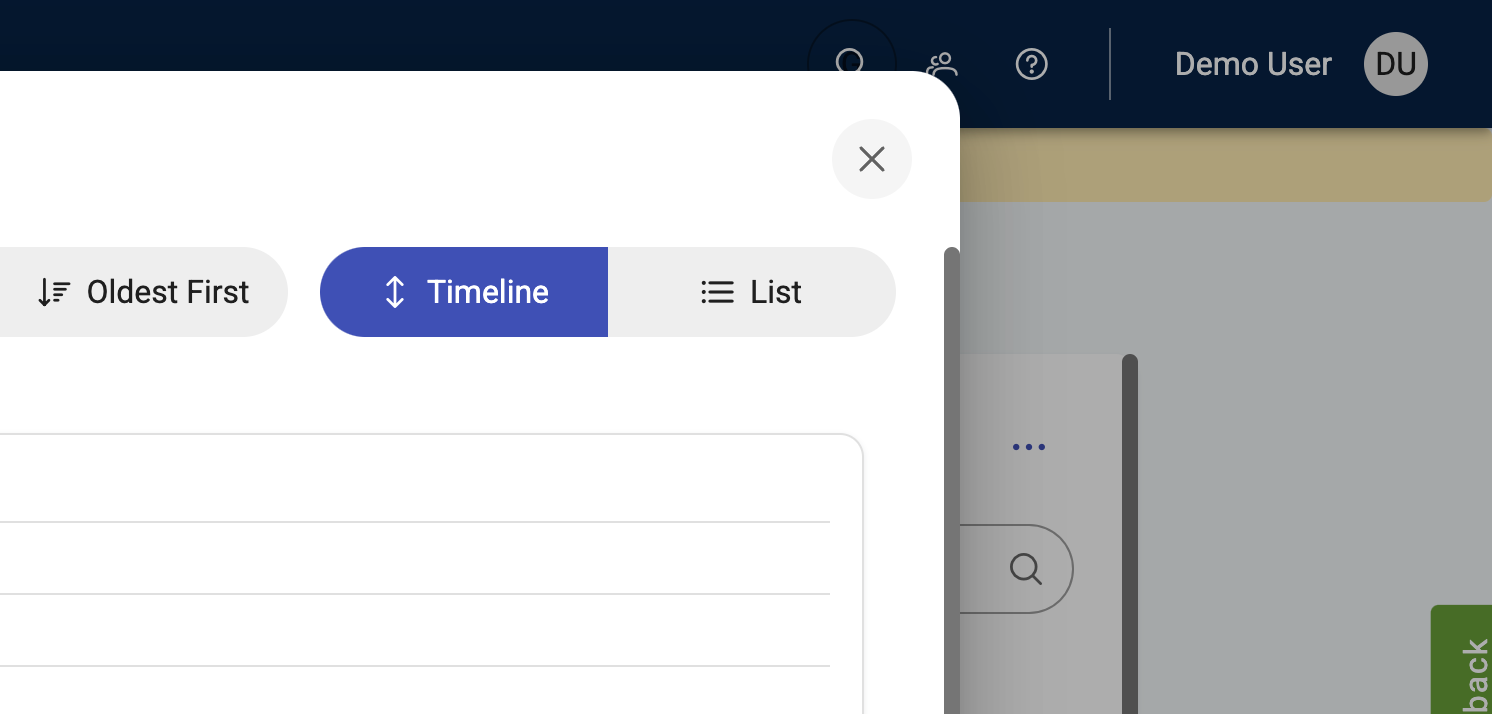
You can analyze and the effects of any planned medication or an intervention before making a final decision.
Thank you.
